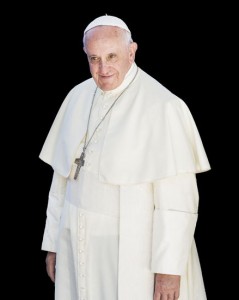The Pope Effect: Will Francis Bring Nonbelievers to the Catholic Church?
 Photo by vstudios / 123RF
Photo by vstudios / 123RF In the lead-up to Pope Francis’s long-awaited visit, not a day seems to go by without a new headline lauding the pontiff for his compassion and ingenuity. Even the humanist community may be divided on its reactions to Pope Francis. His attention to climate change and economic inequality are issues that also concern many humanists, and he is staunchly against the death penalty, aligning with a position that the American Humanist Association has held for decades.
At the same time, however, humanists are often quick to point out that Francis’s positions aren’t a real departure from Catholic doctrine and aren’t as compassionate as they seem. Last week, for instance, the media hailed Francis for his compassion and kindness when he announced that women could be forgiven for the “sin” of abortion by a priest, instead of needing to seek a bishop’s absolution. However, the announcement in no way alters the Catholic Church’s callous stance that abortion is immoral and that women who terminate pregnancy deserve guilt and shame. A truly compassionate stance would be one in which the Catholic Church trusted women to make the best decision for themselves and their families in choosing to abort or keep a pregnancy, with no reproach for either option. Unfortunately, the pope’s renowned compassion does not seem to extend that far.
While steadfast humanists are unlikely to be swayed by Pope Francis, some in the church seem to hope that the pontiff’s popularity might boost Catholicism’s numbers in the United States, a trend dubbed “the Francis effect.” Catholicism, as a whole, appears to be declining in the US. The Pew Research Center’s Religious Landscape Survey found that the percentage of the US population that identifies with no religious affiliation (22.8 percent) is now slightly higher than the percentage of the population that identifies as Catholic (20.8 percent). But according to a new Pew Research Center survey, even American Catholics diverge with the church on issues related to marriage and families.
The study found that of the survey respondents who identified as Catholic, nearly half (48 percent) felt that children being raised by an unmarried mother and father was acceptable and as good as any other arrangement for raising children, and almost that many (43 percent) felt that same-sex couples raising children was also acceptable and just as good as any other family arrangement. According to Jessica Martinez, a senior researcher at Pew, there was some variation in these findings by age. “Catholics under thirty are more likely than older Catholics to say that children being raised by a gay or lesbian couple is ‘acceptable and as good as any other arrangement for raising children,’” Martinez told TheHumanist.com, “But they are not more likely to say this about children being raised by single parents or divorced parents.”
Sixty-six percent of US Catholics do not think that using contraception is a sin, and nearly half (46 percent) think that the Catholic Church should recognize same-sex marriages. Catholic women seemed somewhat more likely than Catholic men to disagree with the church on these teachings. “Catholic women do tend to be more accepting than men on the questions about single parent families and same-sex families,” Martinez wrote in an email. “Catholic women are also somewhat more likely than Catholic men to say they think the church should allow Catholics to use birth control, and that it should recognize the marriages of gay and lesbian couples.”
If many Americans who identify as Catholic deviate from church doctrine on issues related to marriage and family life, what do those who have left the Catholic Church think? Pew also looked at the opinions of ex-Catholics, defined in the study as Americans who reported being raised in the Catholic Church but who no longer consider themselves Catholic in any way. According to Martinez, 50 percent of these ex-Catholics are religiously unaffiliated, and “among all ex-Catholics, 8 percent identify as atheist in this survey, 13 percent as agnostic, and 30 percent say they are ‘nothing in particular.’” The study also included a category of cultural Catholics, who identified as “faith tradition other than Catholicism” or as religiously unaffiliated but who also “consider themselves Catholic or partially Catholic in some other way.” Of these cultural Catholics, Martinez reported that only “2 percent identified as atheists in this survey, 4 percent as agnostics and 29 percent as ‘nothing in particular.’” These cultural Catholics also seem more likely to rejoin the church, as 43 percent said they could see themselves returning fully to Catholicism in the future. Ex-Catholics, however, appear unlikely to rejoin the church, even if they do generally hold Pope Francis in high esteem. Eighty-nine percent of ex-Catholics stated that they could not ever imagine themselves rejoining the church.
With that many ex-Catholics unlikely to ever return to the church, not even Pope Francis’s popularity seems capable of bringing all of the so-called lost sheep back into the fold. For those who have declared their permanent separation from the church, humanism might be a more appealing option, since it’s far less rigid and far more individualistic than Catholicism. Humanists may also want to consider putting greater emphasis on our positive values of respect for human sexuality and support for reproductive justice. The American Humanist Association has been championing the right of marriage for same-sex couples and the reproductive rights of women since the 1960s. The humanist community should continue to work toward these and other positive values, both to let ex-Catholics know that they can find a welcoming home in humanism and to collaborate with progressive Catholics (as they are on the upcoming Common Ground conference) wherever possible to create a more equitable society for all.
